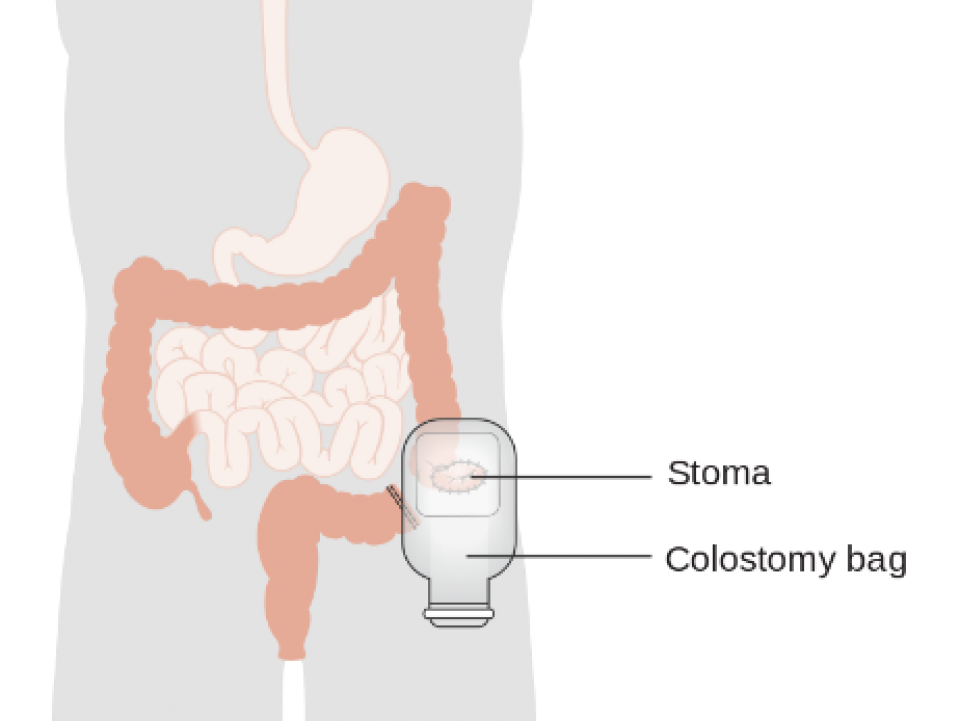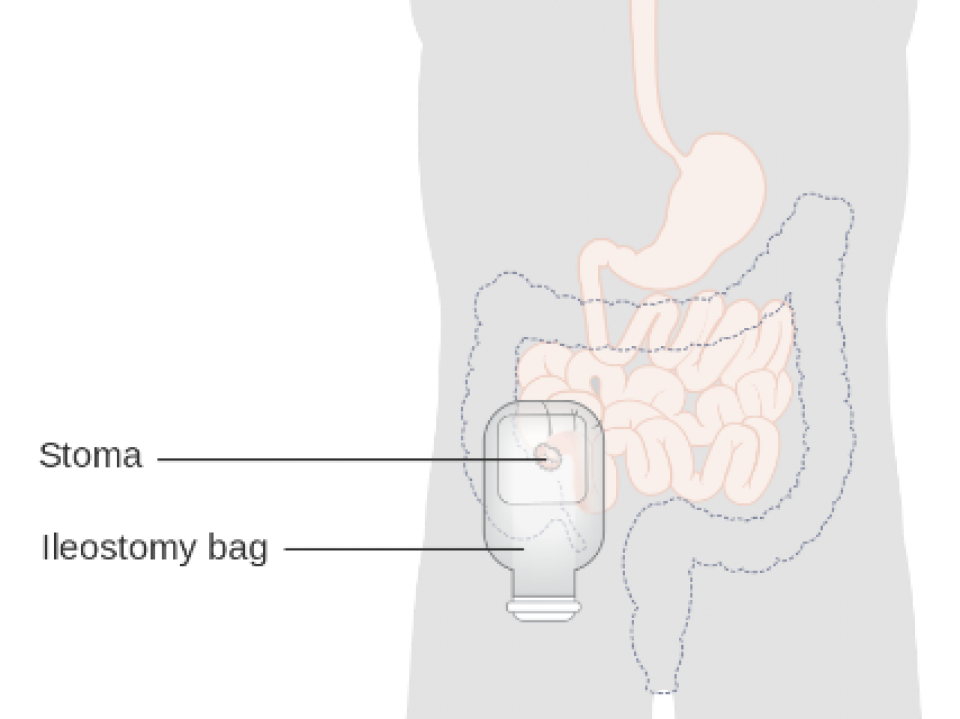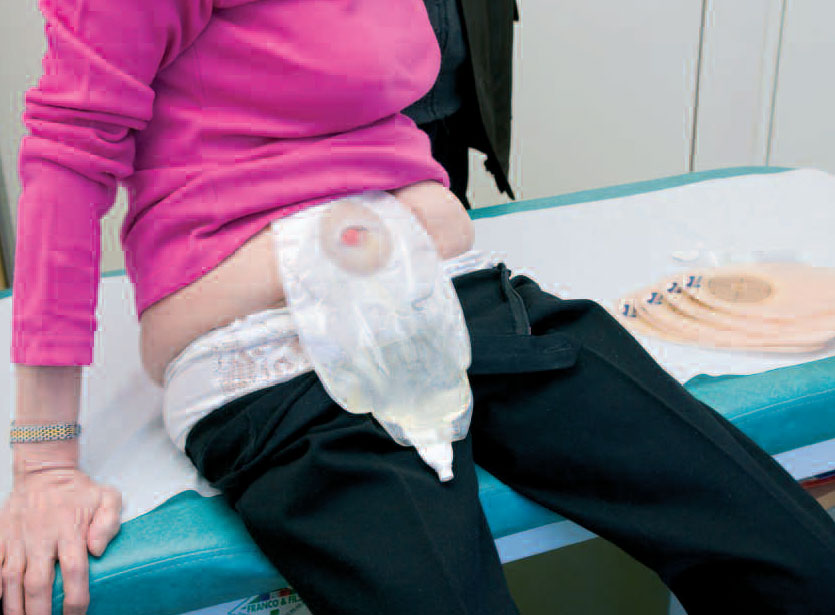Caring for your stoma

Stomas and how to care for them
Ileostomy / colostomy
When you have a stoma, your bowel motions empty into a bag through an opening (or stoma) on your tummy. These can be permanent or temporary.

Colostomy

Ileostomy
Images courtesy of CRUK / Wikimedia
Stoma reversal
If your colostomy / ileostomy is temporary, you can have an operation to re-join your bowel so that you won’t need to wear the bag any more. Read more about stoma reversal.
Tips and hints - living with a stoma
- It takes a while to get into the routine of looking after the stoma. Give yourself plenty of time and privacy to practise until you get used to it.
- Ask a friend or family member to come with you when the nurse is showing you how to look after your stoma, if you want someone to support and help you at home.
- Make sure you have everything ready before you change the bag: a new bag, wet and dry wipes for cleaning, a rubbish bag for waste and any accessories you use.
- It may take a few days for supplies to arrive to your pharmacy, so make sure you reorder regularly, before your supplies run out.
- Bring supplies with you when you’re out and about. Keep some in your car/pocket/bag.
- When you go on holiday, remember to take enough supplies with you.
- Find out about stoma accessories to help make you more comfortable. These include girdles, support belts, deodorisers, wipes, skin protective wipes, lotions and creams, adhesive removers, stoma paste, rings and disposal bags.
- Keep in touch with your stoma nurses and let them know if you would like to change the products or accessories you’re using.
- You should be able to exercise with a stoma, including swimming. Talk to your doctor, nurse or someone living with a stoma for advice on getting active with a stoma.
- Having a stoma can affect how you feel about sex. Read more about sex with a stoma.
Possible problems and ways to avoid them
Leaking
- Empty it more often, as the bag is likely to be too full.
Bag not attached properly / Bag not fitting properly
- Double check the fitting instructions and the size / shape of the stoma.
- Ask to see the nurse again if you need more help with this. Weight loss or gain, sore skin or skin folds may also affect how well the bag / flange attaches.
Bag smells
- Check if any foods make things worse. E.g. Onions, eggs, fish, asparagus. Keep a food diary to keep track of any ‘problem’ foods.
- Try eating yoghurt or buttermilk, or take peppermint oil capsules to improve smells.
- Ask your nurse for tips on reducing smells from the bag. For example, drops, gels or granules that you can put in the bag.
Wind
- If you have an ileostomy / colostomy some foods can cause wind. Try keeping a food diary to see if you can find out which foods are causing the problem.

Food symptom diary
You can print this sheet to record what you are eating each week and if any foods cause symptoms.
pdf
5.22MB

Getting advice
- Your stoma nurse and other nurses will teach you how to care for your stoma at hospital.
- The community stoma nurse, public health nurse or hospital stoma care nurse can help you once you go home
- Someone who has already learned to live with a stoma may have useful tips on managing the bag. Ask your nurse if they can put you in touch with someone.
For more information
Phone
1800 200 700



